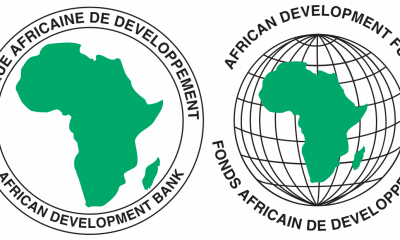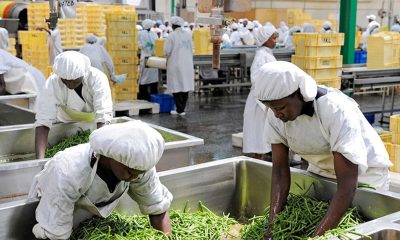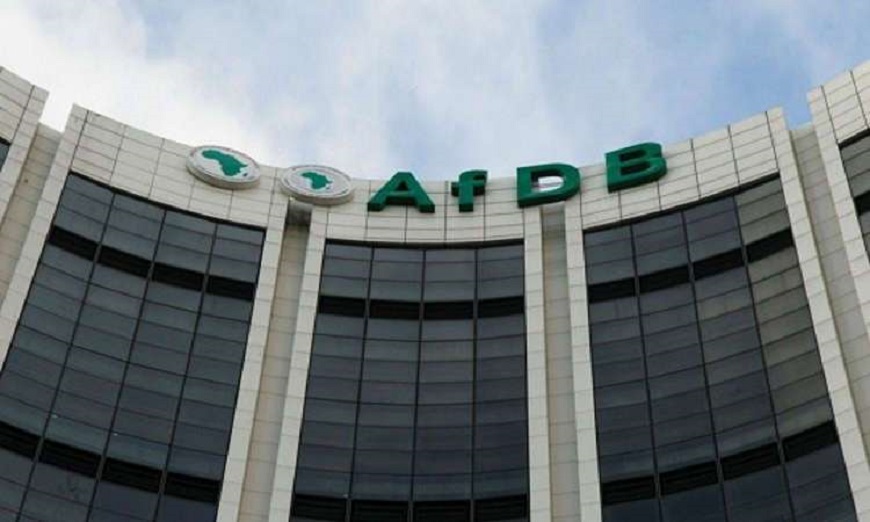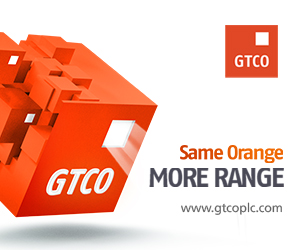Economy
Adesina Backs Strong Policies On Food Processing In Africa
By Dipo Olowookere
The challenge of post-harvest losses in Africa is one issue that has given farmers and stakeholders in the agriculture sector sleepless nights.
One person that is as well worried about this problem is the President of African Development Bank (AfDB), Mr Akinwumi Adesina, who wants African leaders to formulate policies that will tackle the menace and put an end to it.
Delivering his keynote address on Thursday at the African Green Revolution Forum (AGRF) in Nairobi, Kenya, Mr Adesina outlined the importance of policies to support the establishment of private sector-driven food processing and manufacturing companies in rural areas to deal with the immense food waste, enough to feed at least 300 million people a year.
“Massive quantities of food crops, fresh fruits and vegetables and dairy products go to waste in rural areas, while Africa depends on food imports,” Mr Adesina said.
“That is more than the 250 million people that go hungry each year in Africa,” he told a session on the “Role of Policy in Enabling Public-Private Partnerships to Achieve African Agricultural Transformation,” he added.
Reports indicate that post-harvest losses (PHL) in Africa are equivalent to the annual caloric requirement of 48 million people, and worth US $4 billion in lost revenue per year.
The agro-allied industrial zones and staple-crop processing zones in rural areas, supported with consolidated infrastructure, including roads, water, electricity, will drive down the cost of doing business for private food and agribusiness firms, Adesina said.
They will also create markets for farmers, boost economic opportunities in rural areas, stimulate jobs and attract higher domestic and foreign investments in the rural areas.
“They will turn the rural areas into zones of economic prosperity,” he said.
Kenya has instituted policies to accommodate crop processing, such as macadamia nuts, the country’s Minister of Agriculture, Livestock and Fisheries, Mr Willy Bett, told the forum.
“We have changed our policies to include processing of macadamia nuts. We want production and processing to be done here so that we boost the industry and mostly the local farmers,” he stated.
The inability of farmers to access insurance and finance was emphasised as a major setback to agriculture, with Shenggen Fan, the Director General of the International Food Policy Research Institute, blaming this for making farmers susceptible to shocks. He said access to financing was necessary to protect farmers against vulnerability.
This was reiterated by Mr Adesina, who noted that, despite accounting for some 32% of the GDP, the agriculture sector receives less than 3% of the banking sector’s financing. He called on governments to address failures and reduce the risks facing the financial sector that block lending to agriculture.
Nigeria was cited as a country that has successfully developed a national risk-sharing facility for banks to lend to agriculture.
Through the Nigeria Incentive-Based Risk Sharing System for Agricultural Lending (NIRSAL), the country witnessed a 600% increase in lending by banks to the agriculture sector, rising from 0.7% of total bank lending to 5% within four years.
This has since led to banks establishing their own agricultural lending desks.
But investments in science, technology and innovation in Africa’s agriculture are equally important, according to Dominique Charron, the Director for Agriculture and Environment at the Ottawa-based International Development Research Centre.
“If you want to transform agriculture, we need to invest in innovation, ICT, science, and help build the capacity of Africa’s farmers in these areas,” Charron told the forum.
She called for part of the financial pledges to agriculture made by several organisations at the ongoing AGRF to be channelled toward innovation, ICT and science. A September 7, 2016 session on “Making Political, Policy and Financial Commitments” saw several organisations, including the AfDB, make commitments to agriculture amounting to over US $30 billion.
Related articles across the web
Economy
NASD Exchange Closes Flat Despite Posting Six Price Movers

By Adedapo Adesanya
The NASD Over-the-Counter (OTC) Securities Exchange closed flat on Wednesday, February 26 with the Unlisted Security Index (NSI) static at 3,268.81 points and the market capitalization unchanged at N1.851 trillion.
The alternative stock exchange closed flat at midweek despite recording six price movers, with two in the green region and four in the red territory.
On the gainers’ side Afriland Properties Plc and FrieslandCampina Wamco Nigeria Plc, with the former rising by N1.12 to N22.80 per unit from the preceding day’s N21.68 per unit and the latter expanding by 76 Kobo to settle at N39.86 per share compared with Tuesday’s closing price of N39.10 per share.
However, First Trust Microfinance Bank Plc lost 5 kobo to close at 47 Kobo per unit compared with the previous day’s 52 Kobo per unit, Geo Fluids dropped 34 Kobo to settle at N3.58 per share versus the preceding session’s N3.24 per share, UBN Property Plc went down by 10 Kobo to finish at N1.75 per unit, in contrast to Tuesday’s closing price of N1.85 per unit, and Central Securities Clearing System (CSCS) Plc declined by 14 Kobo to close at N22.01 per share versus N22.15 per share.
During yesterday’s session, the volume of securities transacted by investors jumped by 99.3 per cent to 1.2 million units from the 605,399 units transacted in the previous trading day.
However, the value of transactions slid by 28.5 per cent to N10.6 million from N14.8 million, while the number of deals went up by 58.3 per cent to 38 deals from 24 deals recorded on Tuesday.
At the close of business, Impresit Bakolori Plc was the most active stock by value (year-to-date) with 533.8 million units worth N520.9 million, followed by Afriland Properties Plc with 16.4 million units valued at 335.2 million, and FrieslandCampina Wamco Nigeria Plc with 8.3 million units valued at N329.2 million.
Industrial and General Insurance (IGI) Plc ended the most active stock by volume on a year-to-date basis with 69.7 million units worth N23.6 million, trailed by Geo-Fluids Plc with 10.9 million units sold for N51.9 million, and FrieslandCampina Wamco Nigeria Plc with 8.3 million units valued at N329.2 million.
Economy
Naira Remains Unchanged at N1,501/$1 at Official FX Market
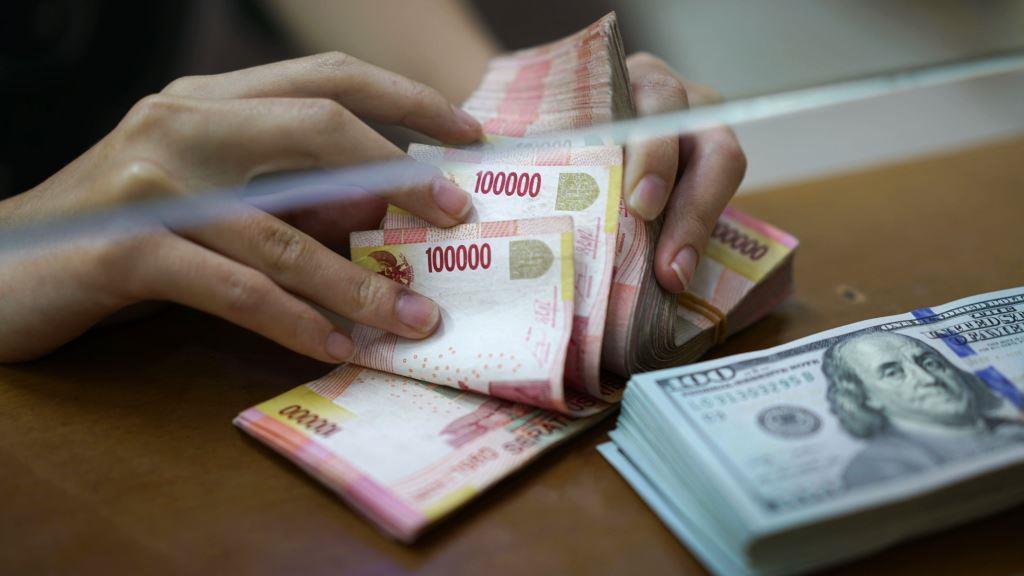
By Adedapo Adesanya
The Naira closed flat on the US Dollar at the Nigerian Autonomous Foreign Exchange Market (NAFEM) on Wednesday, February 26 at N1,501.95/$1.
Also, the value of the local currency against the Pound Sterling and the Euro remained unchanged in the official market during the session at N1,894.72/£1 and N1,570.11/€1 apiece.
However, the Nigerian currency depreciated against the United States currency by N10 at midweek to quote at N1,500/$1, in contrast to the preceding day’s N1,490/$1.
The outcome of the local currency comes amid ease in the wider economy and recent moves like clearing backlogs, which have led to the country’s foreign reserves losing over $2 billion in the last month.
However, market analysts fear that the continued drop in the foreign reserves may only offer temporary respite to the Naira.
In the cryptocurrency market, most of the tokens fell on Wednesday after the US President, Mr Donald Trump, said he plans to impose a 25 per cent tariff on the European Union (EU) during his first cabinet meeting.
The price of Bitcoin (BTC) depreciated by more than 3 per cent in the last 24 hours to close at $85,878.47.
After the recent market selloff, there were calls that the drop might have been the bottom but Mr Trump’s EU tariff plans seem to have dampened market optimism.
The American President claimed that the 27-member union does not accept US cars and farm products while the US buys from the bloc.
On its part, the EU said it will react firmly and immediately against “unjustified barriers to free and fair trade”
Ethereum (ETH) slumped by 5.9 per cent to $2,341.69, Ripple (XRP) went down by 3.7 per cent to $2.20, Cardano (ADA) fell by 2.9 per cent to trade at $0.6625, Dogecoin (DOGE) depreciated by 1.3 per cent to $0.2076, Binance Coin (BNB) weakened by 1.2 per cent to $614.13, and Solana (SOL) declined by 1.0 per cent to $140.03.
But Litecoin (LTC) recorded a 6.9 per cent appreciation to quote at $126.46, while the US Dollar Tether (USDT) and the US Dollar Coin (USDC) closed flat at $1.00 each.
Economy
Nigerian Exchange Bounces Back by 0.02%

By Dipo Olowookere
The Nigerian Exchange (NGX) Limited recorded its first gain this week, with a marginal 0.02 per cent rise on Wednesday, showing resilience in the face of adversities.
Also, investor sentiment turned bullish after closing weak in the past trading sessions.
Yesterday, the bourse ended with 30 price gainers and 15 price losers, representing a positive market breadth index.
UH REIT gained 9.94 per cent to settle at N44.25, Africa Prudential jumped by 9.90 per cent to N33.30, Caverton soared by 9.87 per cent after a deal with the Nigerian National Petroleum Company (NNPC) Limited to N2.45, Omatek rose by 8.22 per cent to 79 Kobo, and Lasaco Assurance grew by 6.92 per cent to N3.09.
On the flip side, Guinea Insurance tumbled by 10.00 per cent to 72 Kobo, Eunisell crumbled by 9.68 per cent to N9.80, The Initiates declined by 8.02 per cent to N3.67, Oando shed 7.69 per cent to sell for N48.00, and Union Dicon dropped 7.50 per cent to trade at N5.55.
During the midweek session, the consumer goods counter chalked up 0.17 per cent, the insurance index appreciated by 0.16 per cent, and the industrial goods sector improved by 0.01 per cent.
However, the energy space gave up 0.71 per cent, and the banking sector depreciated by 0.21 per cent, while the commodity counter closed flat.
When Customs Street closed for the day, the All-Share Index (ASI) increased by 17.38 points to 107,798.99 points from 107,781.61 points and the market capitalisation added N11 billion to finish at N67.179 trillion compared with the preceding day’s N67.168 trillion.
Business Post reports that 245.5 million stocks worth N8.4 billion exchanged hands in 10,098 deals on Wednesday, in contrast to the 363.0 million stocks valued at N10.1 billion transacted in 13,753 deals on Tuesday.
This indicated that the trading volume, value and number of deals went down by 32.37 per cent, 16.83 per cent, and 26.58 per cent, respectively.
Access Holdings led the activity chart with 36.6 million shares sold for N937.9 million, Zenith Bank transacted 26.8 million equities worth N1.3 billion, Sterling Holdings exchanged 11.3 million stocks valued at N62.3 million, Jaiz Bank traded 10.9 million equities worth N36.1 million, and AIICO Insurance transacted 10.8 million stocks for N17.9 million.
-

 Feature/OPED5 years ago
Feature/OPED5 years agoDavos was Different this year
-
Travel/Tourism9 years ago
Lagos Seals Western Lodge Hotel In Ikorodu
-

 Showbiz2 years ago
Showbiz2 years agoEstranged Lover Releases Videos of Empress Njamah Bathing
-
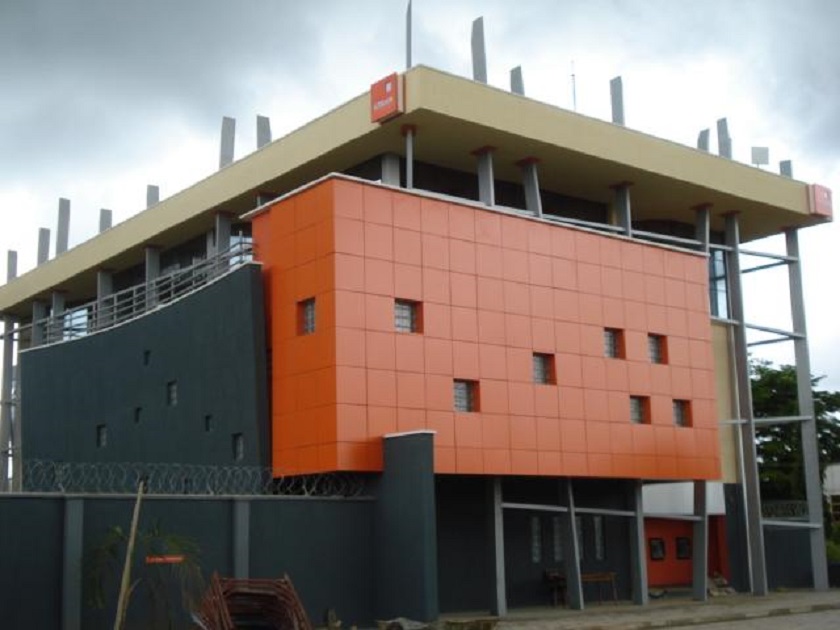
 Banking7 years ago
Banking7 years agoSort Codes of GTBank Branches in Nigeria
-

 Economy2 years ago
Economy2 years agoSubsidy Removal: CNG at N130 Per Litre Cheaper Than Petrol—IPMAN
-

 Banking2 years ago
Banking2 years agoFirst Bank Announces Planned Downtime
-

 Sports2 years ago
Sports2 years agoHighest Paid Nigerian Footballer – How Much Do Nigerian Footballers Earn
-

 Technology4 years ago
Technology4 years agoHow To Link Your MTN, Airtel, Glo, 9mobile Lines to NIN








